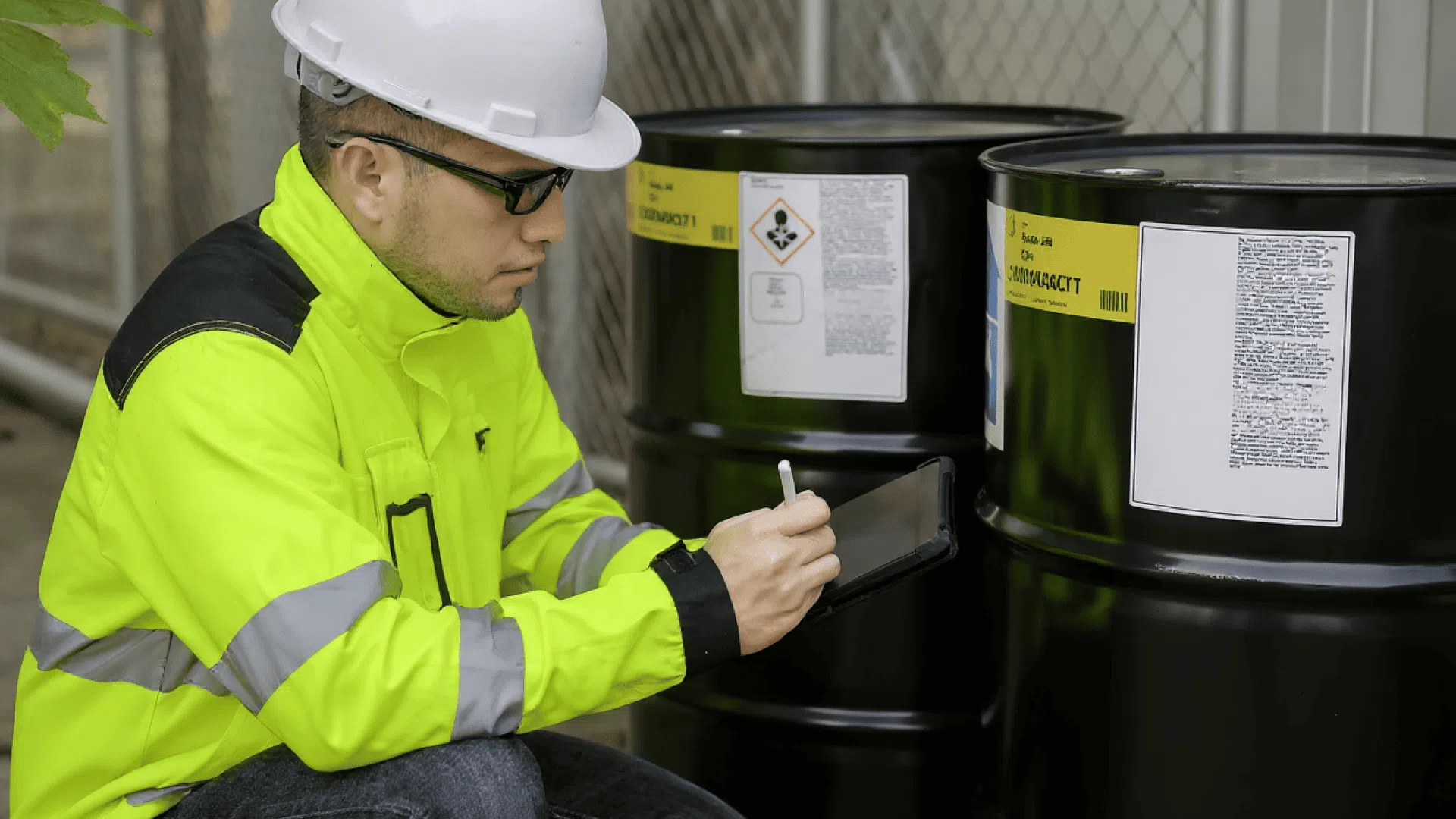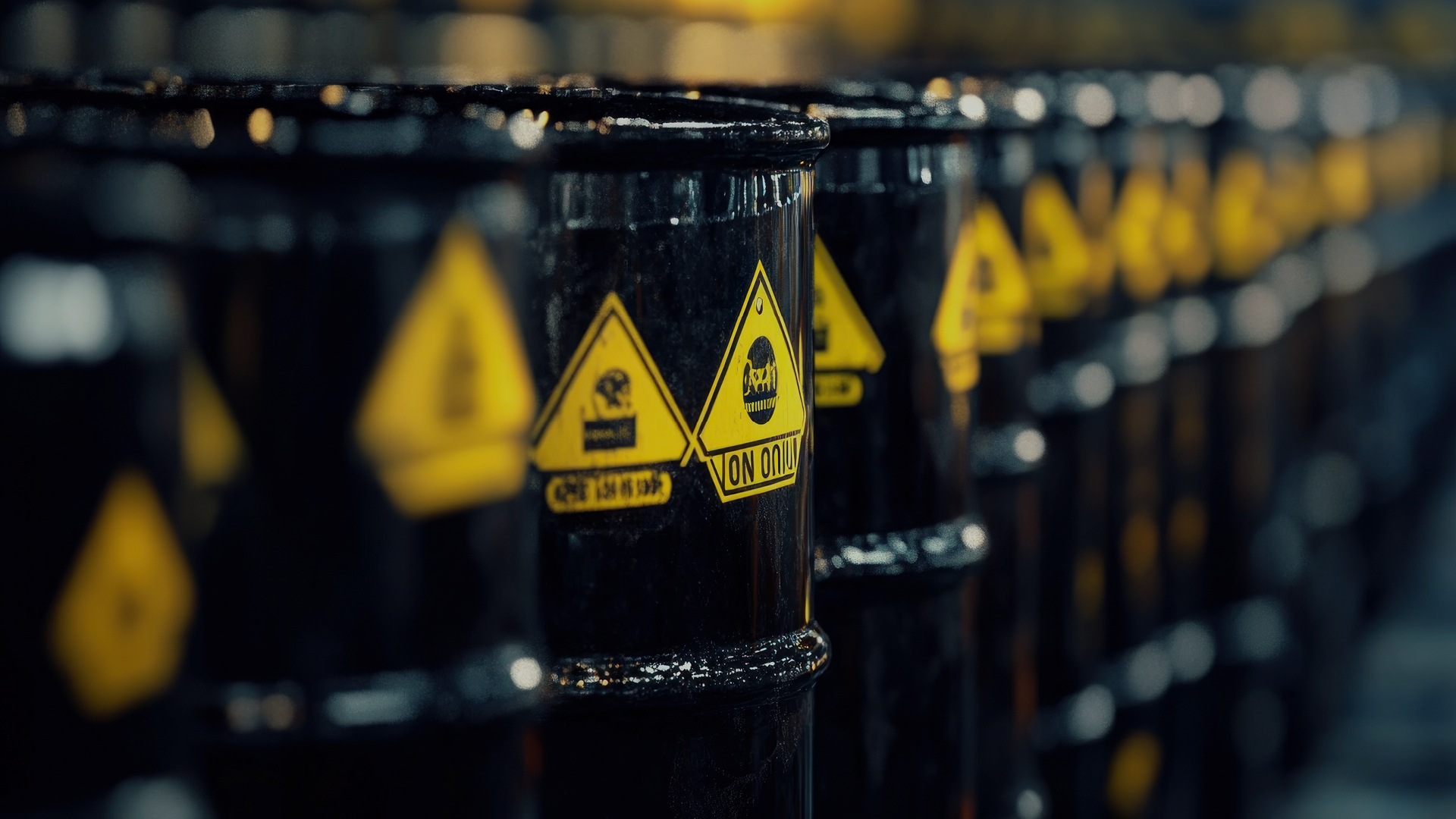Learn how ERP simplifies hazardous materials compliance while securing critical processes across your operations.

Summary:
A gamechanger for SMEs in the chemical industry: ERP systems enable intelligent hazardous substance management! Safety data sheets, hazardous substance registers, and fire brigade lists are always up to date – compliance included. This makes efficiency effortless and safety second nature for every team.
Whether during processing or transport – every stage in handling hazardous substances is governed by strict regulations. And for good reason: safe operations protect lives, prevent accidents, and ensure compliance with numerous legal requirements.
At the same time, administrative effort continues to grow – from creating safety data sheets to maintaining hazardous substance registers and fire brigade lists. Modern ERP solutions help you manage these tasks efficiently and in full compliance. Our article explains the key fundamentals and shows what an ERP system can do.
For SMEs in the chemical industry, it’s a major challenge to stay on top of all regulatory requirements and ensure complete compliance. Mistakes not only lead to fines but can also compromise safety. An ERP system embeds legal requirements directly into your processes from the start – automatically considering updates and regulatory changes.
Key regulations for chemical companies at a glance:
Effective hazardous substance management requires reliable processes – and safety data sheets (SDS) are at the core. They contain all key information on hazards, protective measures, and disposal. Yet many SMEs still manage their SDS manually – a time-consuming and error-prone approach.
With an ERP system, you can manage safety data sheets centrally, version them automatically, and directly link them to relevant products. Employees have instant access to up-to-date information at all times.
The same principle applies to the hazardous substance register: instead of scattered Excel files, the ERP system creates a revision-proof directory of all substances in use – including quantities, areas of application, and classifications.
The difference is clear:
Another crucial element in hazardous substance management: the fire brigade list. Although often underestimated, it plays a decisive role in emergencies, providing rescue teams with an instant overview of stored hazardous substances, their quantities, and risk potential.
While manual updates quickly become outdated, an ERP system generates this list automatically and on demand – always accurate and up to date. This enables fire and rescue teams to respond faster and more effectively in critical situations – a clear safety advantage for employees, facilities, and the surrounding environment.
Safety depends not only on documentation but also on employee behavior. Regular training sessions are therefore mandatory. An ERP system supports companies in planning and tracking training, monitoring deadlines, and documenting records in a legally compliant way. At the same time, it simplifies both internal and external quality audits – reports can be generated automatically and made available directly during inspections.
The advantages at a glance:
For SMEs in the chemical industry, professional hazardous substance management is indispensable. The multitude of regulations, growing documentation requirements, and responsibility for safety can hardly be managed efficiently without digital support. This is where an ERP system demonstrates its strengths: it digitizes safety data sheets, hazardous substance registers, and fire brigade lists, automates processes, and ensures full compliance with legal requirements.
The result: greater safety for employees, more transparency for authorities, and less administrative effort for your company. ERP is therefore not just a tool for increasing efficiency – it delivers safety and compliance, forming a key pillar for the long-term success of chemical SMEs.
Those ready to take this step benefit most from an industry-specific ERP solution designed especially for the chemical sector.
Our ERP for the process industry – Yaveon 365 – combines specialized chemical industry functionalities with the flexibility of the Microsoft ecosystem. In doing so, it transforms regulatory requirements, safety processes, and documentation duties into a fully digital workflow that boosts efficiency and creates space for innovation – empowering companies that value both safety and progress.
 How to manage hazardous materials safely – Beitrag öffnen
How to manage hazardous materials safely – Beitrag öffnen
Learn how ERP simplifies hazardous materials compliance while securing critical processes across your operations.
 Chemical industry digital transformation – Beitrag öffnen
Chemical industry digital transformation – Beitrag öffnen
From digital twins to AI – discover the technologies that are driving digitalization in the chemical industry.
 Recipes & characteristics in chemical production – Beitrag öffnen
Recipes & characteristics in chemical production – Beitrag öffnen
Future-proof chemical production: precise recipes, controlled characteristics and seamless lot tracking.